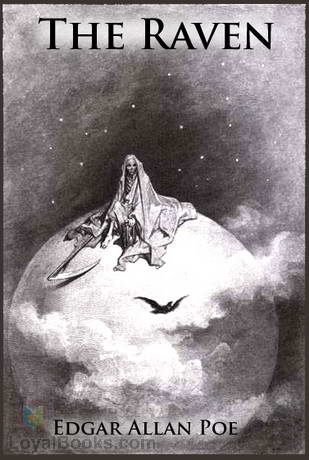
When a modern film script draws inspiration from a poem written more than a century ago, readers can judge its impact on our collective imagination. Such is the resonance of the poem “The Raven” by Edgar Allan Poe.
First published in 1845, “The Raven” is a masterpiece of atmosphere, rhythmic quality and use of language. Constructed in narrative form, it tells the story of a young man who is mourning the loss of his beloved. One December night as he wearily sits up browsing through a classical volume, a mysterious tapping against his window disturbs him. When he opens it to investigate, a strange and mournful raven enters his room and perches on the bust of a Greek goddess inside. The rest of the poem deals with the melancholy and mournful one-sided conversation between the two. The narrator desperately questions the Raven about Lenore, his lost love, but the Raven only gives a single dismal word “Nevermore” in reply. What happens to the narrator in the course of this conversation makes up the rest of the poem.
The intensely dramatic and ominous quality of the poem makes it one of the most remarkable pieces both to read and study. The melodious rhyming structure is specially suited for recitation and reading aloud. The alliterative lines and words make it one of the easiest to recall and recite.
Poe was a master craftsman in using language to evoke a dark and sinister mood in both prose and poetry. The poem received instant success for its creator and appeared in hundreds of journals across the United States. Later, it became a staple that was included in anthologies and won eternal fame for its creator. Poe himself wrote a seminal essay The Philosophy of Composition based on his creation of the poem.
The haunting quality of the poem makes it one of the most enduring narrative poems. Full of symbols and omens, references to Greek mythology and steeped in the themes of love, despair, insanity and the supernatural, its timeless appeal cuts across generations of readers. It has been widely broadcast and recorded by famous theatrical personalities and inspired many writers and music composers across the globe, besides being referred to in many plays, films, novels, on television and in popular music.
Whether you’re reading “The Raven” for the first time, or rediscovering an old favorite, the poem retains its appeal for both youthful and older readers.

Other Audiobook
Audiobook: Introduction to the History of Science
A highly accessible introductory history of the development of scientific thought, method, and application from
Audiobook: The Oresteia
The Oresteia is a trilogy by Aeschylus, one of the foremost playwrights of ancient Greece.
Audiobook: Living Animals of the World, Volume 1: Mammals
The Living Animals of the Natural World, subtitled “a popular Natural History”, proposed to present
Audiobook: Novelle per un anno, vol. 06: In Silenzio
Novelle per un anno è una raccolta di 241 novelle scritte da Luigi Pirandello. Originariamente
Audiobook: History of New Brunswick
Originally published in 1825 under the title: Sketches of New Brunswick : containing an account
Audiobook: The Catalog of Testimonies
This appendix to the 1580 edition of the Book of Concord is a compilation of
Audiobook: Short Ghost and Horror Collection 058
A collection of twenty stories featuring ghoulies, ghosties, long-legged beasties and things that go bump
Audiobook: Jessica’s First Prayer and Jessica’s Mother
Jessica is a little girl who used to be an actress till she grew too
Audiobook: Viking Tales (Version 2)
The story follows the life of the Viking Harald from infancy to his crowning as
Audiobook: Bible (WNT) NT 01: Matthew
Richard Francis Weymouth was born on October 26, 1822 near Plymouth Dock, now known as
Audiobook: Pilgrim’s Progress (version 2)
The Pilgrim’s Progress from This World to That Which Is to Come is a Christian
Audiobook: Secret Tomb
‘In Robore Fortuna’. What could these three words mean? Join Dorothy as she works to